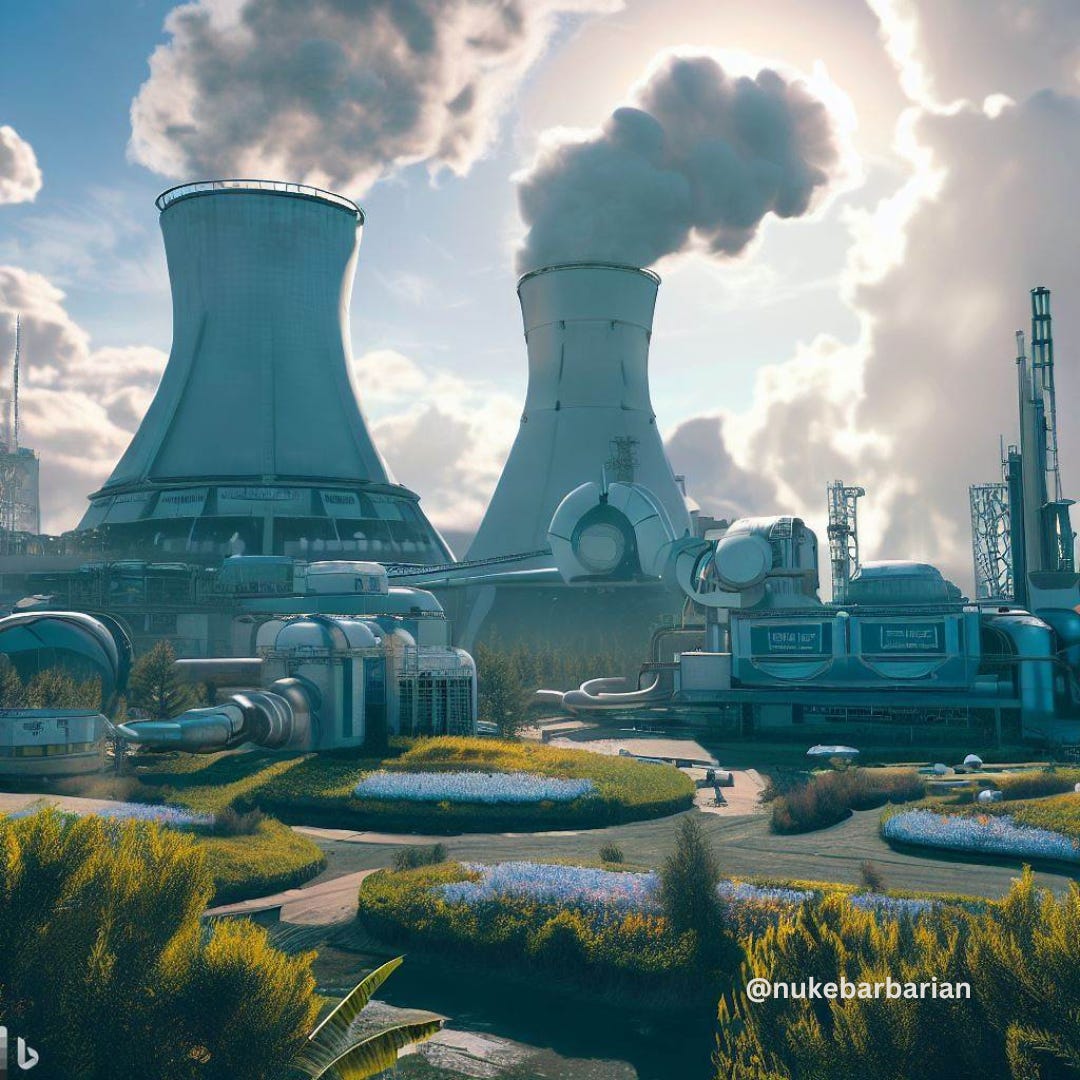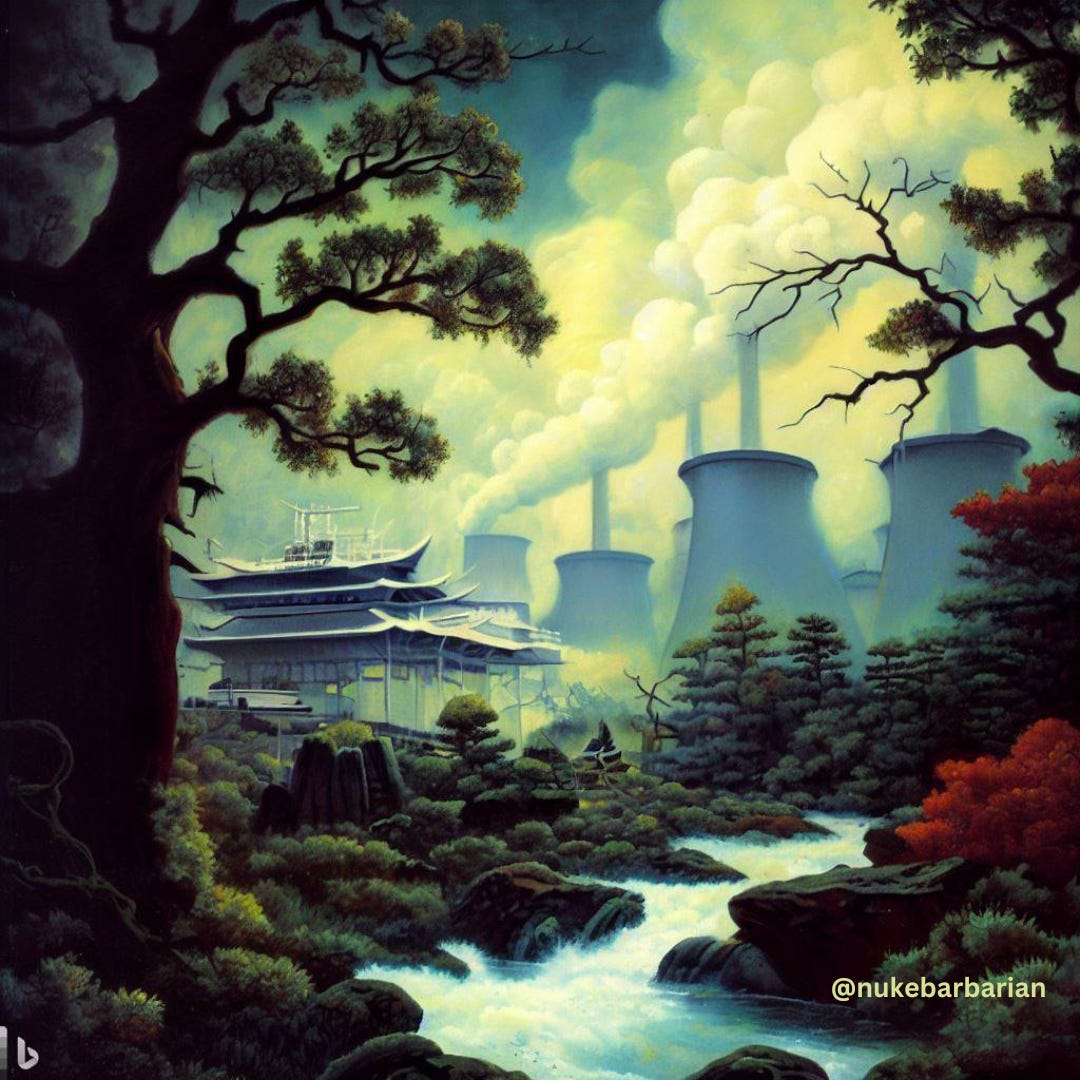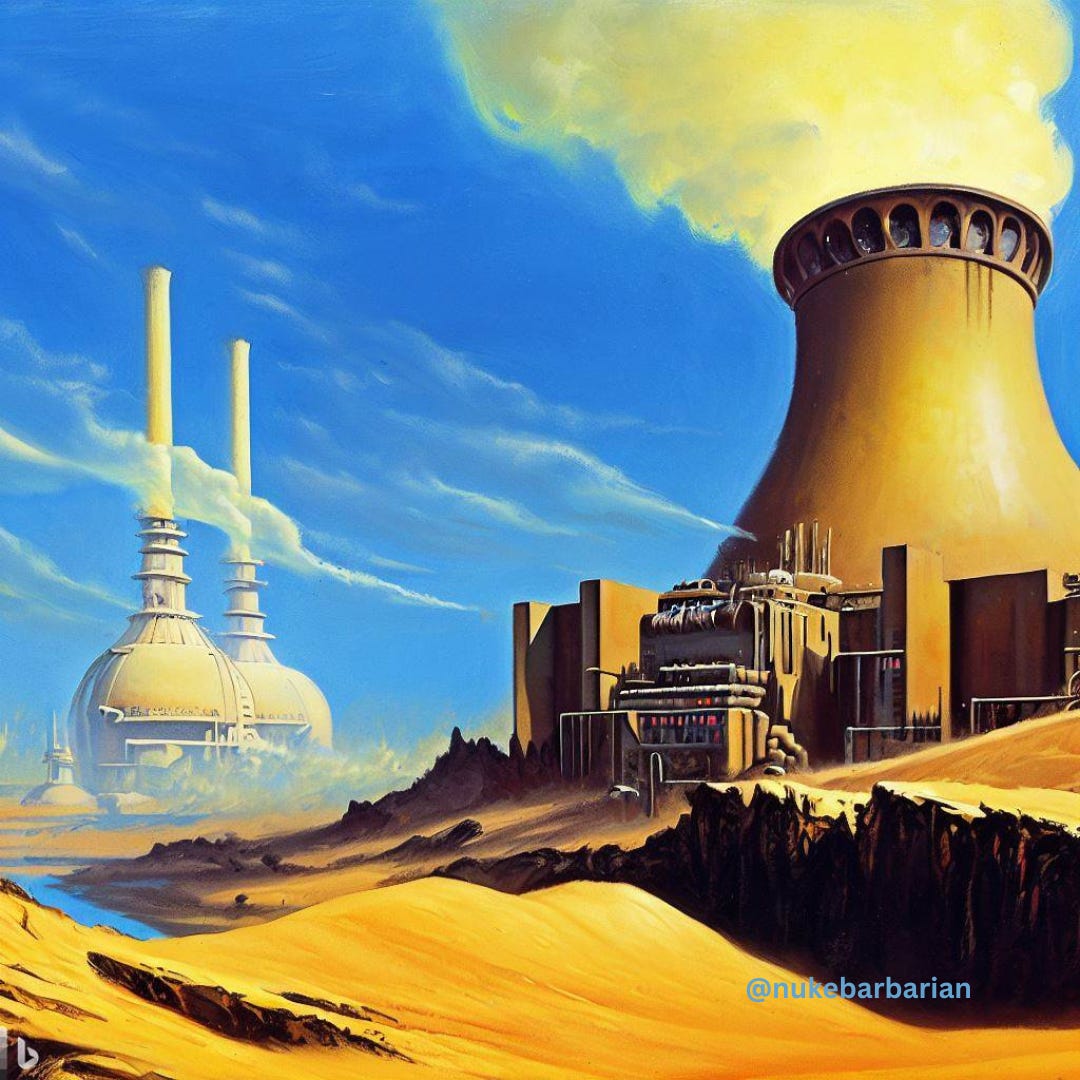MIT researchers recently published a new study that shows shutting down nuclear power plants would increase air pollution that could prematurely kill 5,200 more people than their baseline scenario. Even worse, the scientists estimated an increase in deaths from resultant climate-related effects would rack up an 160,000 deaths over the next hundred years.
Powerful stuff. You can read more about it here.
Studies like these make for potent narrative tools when persuading climate hawks that nuclear should be the star of the emissions reduction show. I’ve seen many allies posting about this study since it came out for that very reason.
So, why did the study make me feel so uncomfortable? It seems like an obvious, unimpeachable point—almost on par with “water is wet.” Isn’t this a slam dunk talking point?
I spent a day or two mulling it over. And what nagged at me is a difficulty that has powerfully asserted itself since 2020—the problem with counting bodies.
We count potential deaths because we’d like to be safe and because we would like to survive. Potential bodies—potential human lives cut short with families given over to grief and society robbed of the precious chances at what could have been—gives us a way to reckon what risks are and are not acceptable to us. At best, it is a practice that encourages prudence.
At worst, however, counting bodies deepens already troubling aspects of our political and cultural milieu. The two most obvious tendencies or ticks that counting potential deaths encourages are: a) deference to experts and technocracy; b) demoralization by limiting the horizon of human life. These are interrelated.
Covid gave us a look at the difficult relationship science, expertise, and democracy share. For many, including myself, the outset of the pandemic smothered me in fear—especially because my wife, who I had married about a month before the outbreak, has a weakened immune system. “What could be worse than losing her?” is a question I asked myself often.
But as the years have passed, a new picture of the risks has emerged. Focusing only on Covid deaths and potential Covid deaths blinded us to other tragedies that asking everyone to remain indoors for months quickly bred. Overdose deaths ballooned by 30 percent in 2020, domestic abuse also surged, and illiteracy flowered among our children.
Perhaps the most public and spectacular consequence of social distancing and “lockdowns” was the summer of 2020 wherein many American cities plunged into vandalism and lawlessness. Many flew the banner of justice, violating their alleged cause with extreme prejudice.
Ultimately, the worry of potential fatalities, which first appeared reasonable to many (again, including myself), amounted to little more than appeals to authority and that authority was often wrong or contradictory. How many times did experts change their minds about masks? Or made exception to their demands for social distancing to promote riots? Or the flip-flopping on the lab leak theory?
The takeaway is this: survival is a necessary but not a sufficient condition for human life. If we allow ourselves to be governed by fear of potential death let alone death itself, then we submit to be managed. Management is about mitigating risk; freedom entails risk and risk can be fatal.
But then what is freedom for? That brings me to the second tendency: demoralization through limitation.
Concern for what the philosopher Giorgio Agamben calls “bare life” has been a powerful force in contemporary politics. To Agamben, bare life takes the biological fact of life over the manner in which life is lived. Through this prism, life shrivels into a utilitarian calculus devoted to risk management.
Limiting the horizon of human life in such a way has a demoralizing impact that spreads uncertainty and stokes fear. The politics of fear in which bare life is bound up inspires a sense of powerlessness toxic to our republican democracy. Self-government stumbles wounded, friendless in a culture terrified of action and risk. It is a mindset nuclear advocates should recognize in their opponents’ hyperbolic and unscientific anxieties about radiation and in the apocalypticism that spews out of a broad swath of the environmental movement.
Basing decisions on why we should keep a nuclear plant running, let alone build a new one, on avoiding potential deaths caters to this perspective. That’s bad for nuclear and for society. There are far better reasons to build nuclear.
Bare life is an inversion of what many ancient philosophers believed. To them, lowering the human sights to eking out survival would be like sacrificing a mountain view for a broad vista of one’s feet.
For Aristotle, political life, which was intrinsic to man’s nature, had a specific telos, or aim. Beautiful action in the political community—beauty being a term freighted with greater weight in Ancient Greece than in America, as it also meant just—is the aim of political life. We aspire not merely to survive, but to live excellently in the most serious meaning of the term.
Nuclear power plants are excellent by every available metric. They are also beautiful in the Aristotelian sense. Gathered around nuclear plants are flourishing communities with thick ties and a membraneous tapestry of civil society. Wealth without decadence abounds in nuclear host communities. Reactors can last far beyond the lifetime of a single person, thus letting grandchildren sup from a well dug by their grandfathers and grandmothers. Nuclear power plants are Industrial Cathedrals.
Arguing from the position of bare life, from the position of fear, reduces political life to “competitive scaremongering.” And it betrays what’s so beautiful about nuclear. Mere survival be damned—we do not build nuclear power plants because we fear death. We build nuclear because we adore life and the rarified air of freedom.
We build nuclear because we love life for the living of it.








That was EXCELLENT!
Powerfully stated and thoughtful article. Two phrases leapt out of the page:
"...freedom entails risk and risk can be fatal." This is why safety is NOT the number 1 objective, but rather an EQUIVALENT objective along with generating power reliably, on budget, in accordance with corresponding permits, licenses, and regulations. If safety was No. 1, why start the plant?
"Nuclear power plants are excellent by every available metric." Those arguing against nuclear power must always use studies that include dire projections of unfavorable outcomes based on unfounded, biased, and/or outright incorrect assumptions or inputs. When studies use actual numbers and inputs based on verifiable data and inputs, nuclear power is unimpeachable - throughout the fuel cycle, in both physical and economic performance., based on unbiased engineering assessments (which account for both technical and economic reality). In other words, whereas other options/energy technologies are compared against each other, notice that nuclear is always compared against perfection.